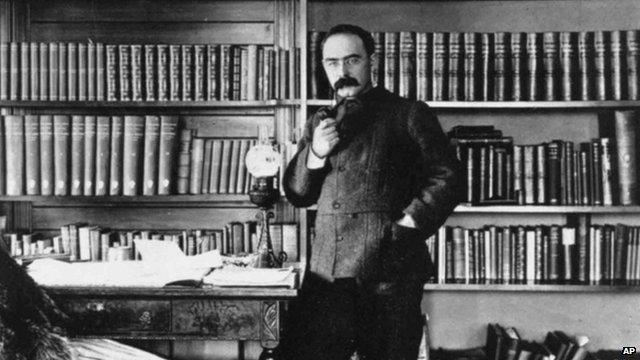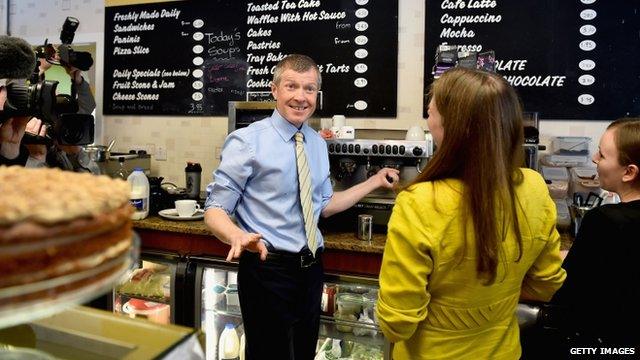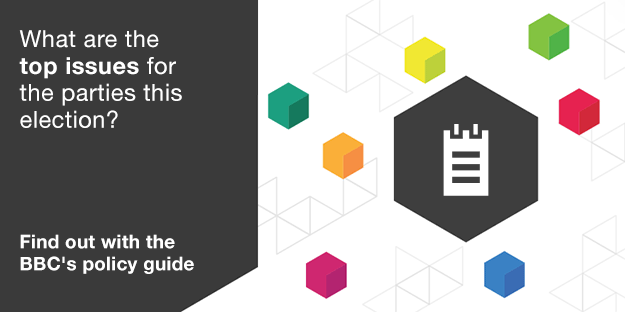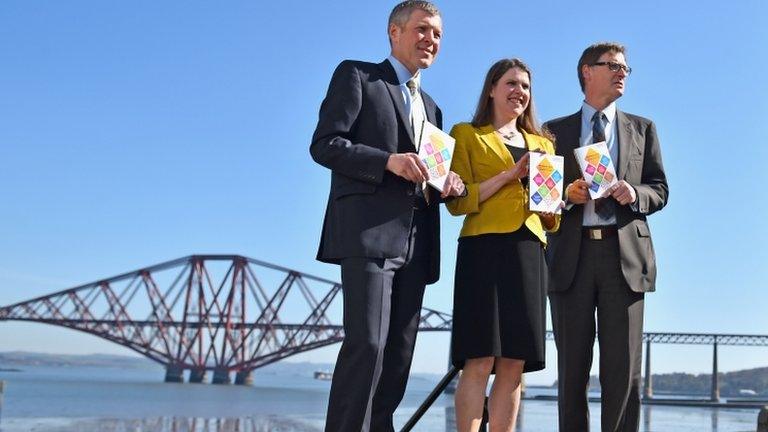Election 2015: Scottish Liberal Democrats 'keep their heads'
- Published

Willie Rennie quoted the words of Rudyard Kipling: "If you can keep your head when all about you are losing theirs."
It was, said Willie Rennie, a question of Kipling. No, nothing to do with cakes even although the location was a patisserie in South Queensferry.
The Kipling at issue was Rudyard of that ilk, story writer, poet and, for a spell, Rector at Scotland's oldest and finest university.
These are not particularly encouraging times for the Liberal Democrats. Polls suggest that they may be in trouble in Scotland and throughout the UK.
Despite that, Mr Rennie was unrelentingly upbeat as he launched his party's Scottish manifesto. Quoting Kipling, he said the Lib Dem attitude was "if you can keep your head when all about you are losing theirs".
Pedant that I am, I vaguely recollected that the verse continues "…and blaming it on you". The Lib Dems perhaps feel they have had more than their proportionate share of assigned blame of late.
Key priorities
Lib Dems
Main pledges
- Balance the budget fairly through a mixture of cuts and taxes on higher earners
- Increase tax-free allowance to £12,500
- Guarantee education funding from nursery to 19 with an extra £2.5bn and qualified teachers in every class
- Invest £8bn in the NHS. Equal care for mental & physical health
- Five new laws to protect nature and fight climate change
Further, I noted to Mr Rennie, the same Kipling poem adds "if you can meet with triumph and disaster and treat those two impostors just the same… "
Which fate, I wondered, would befall the Lib Dems at these elections? Triumph or disaster? Guess which one Mr Rennie chose.
The strategy for the party is definitely: "What we have, we (hope to) hold."
In Scotland, they are defending 11 seats. There is zero talk of extending their reach. Rather, they want to retain their existing strength through a variable combination of incumbency (where that still applies); diligent local campaigning; an offer of a centre course in politics; and squeezing their rivals.
That latter point is particularly germane. Mr Rennie and others in the party have voiced exasperation at fellow members of Better Together who, they say, are risking the prospect of gains for the apparently surging SNP.
The Tories, they say, are "pretending" that they still have a chance in certain key seats which - according to the Lib Dems - have long since changed their underlying nature. In essence, they want to be left alone to contest the SNP in the 11 seats they are defending.

Willie Rennie was at a patisserie in South Queensferry to launch the Scottish Liberal Democrat manifesto
Aha, asked the chap from the Daily Mail, would you extend the courtesy in the other direction? Would you encourage Lib Dem voters in certain seats to vote Labour or Conservative?
A step too far, it seemed. Mr Rennie noted that he was the elected leader of the Scottish Liberal Democrats and rather wanted folk to vote Lib Dem. If that was OK.
So what is the offer? The Lib Dems position themselves in triangulated contradistinction to their rivals. The Tories, they say, want to cut spending too far. Labour and the SNP, they say, want to borrow too much.
By contrast, they argue, the Lib Dems offer a costed and moderate package. Tax up £5bn on bankers and the biggest houses, mainly in SE England. Welfare down £3bn through a one per cent cap on the uprating of working age benefits and removing the free TV licence and winter fuel allowance from pensioners on upper rate tax.
Further coalition?
The aim, they say, would be to balance the current budget by 2017/18. Within that wider project, they say there would be room to generate funds which could, if Holyrood so chose, increase spending on childcare, education and the NHS. Within the health service, they'd focus on mental health, given the chance.
Had their electoral prospects been damaged by coalition with the Conservatives? That was for the voters to decide. Mr Rennie was confident that people would understand they had made the difference, moderating Conservative economic and social policy.
What about the claim that they had U-turned on their policies, notably university tuition fees? They had apologised repeatedly for the latter, while noting the circumstances of coalition which drove their decision. Again, overall, they argue they achieved objectives; for example enhancing the personal tax allowance.
And a further coalition? They stood ready to negotiate with Labour or the Conservatives, noting that there was unlikely to be a majority government.
But not, at Westminster, with the SNP. Mr Rennie said it would not make sense to give a share of UK government power to a party which sought to end the UK as presently constituted.
Elections, of course, are in the hands of the voters. Politicians can cajole. They can plead. They can argue. They can evangelise. But, ultimately, they are subject to the popular verdict......
"If you can make one heap of all your winnings. And risk it on one turn of pitch-and-toss."

- Published21 April 2015
